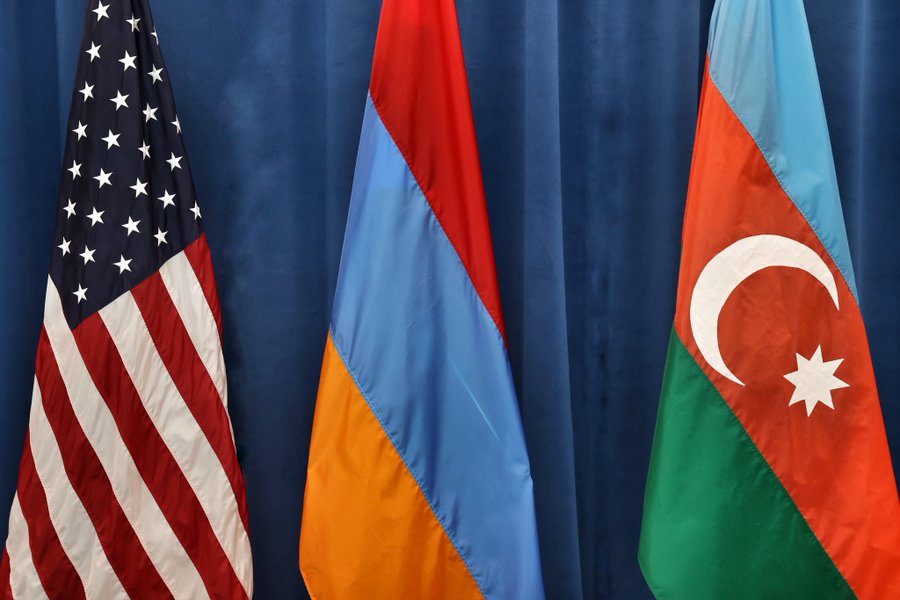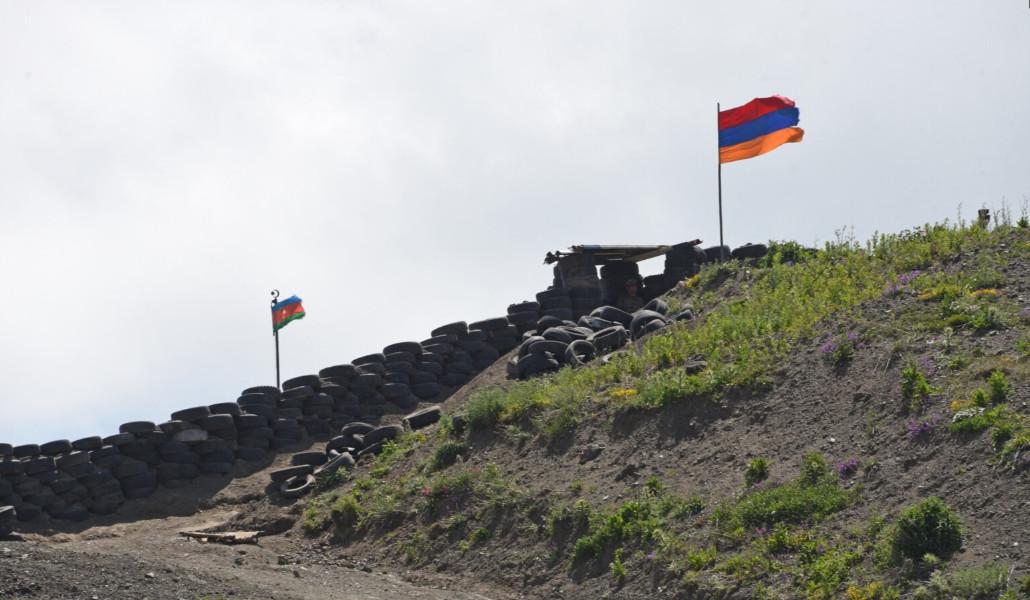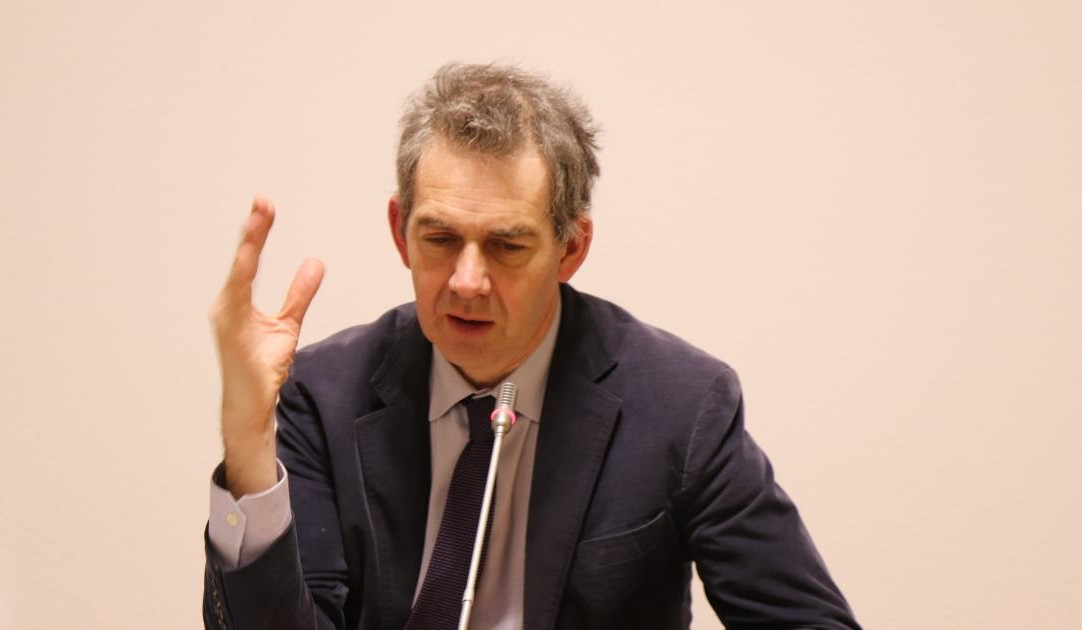'Price' of peace: why Baku is delaying peace deal – view from Yerevan
Price of peace deal with Baku
The domestic political situations in Armenia and Azerbaijan, as well as developments beyond the region, make it possible to sign and implement an Armenian-Azerbaijani peace agreement. This view was expressed by political analyst Areg Kochinyan in his article on the likelihood of signing a peace deal. In it, he not only discusses Baku’s motives for delaying the process but also what could help speed it up:
“This would require the EU’s support for Armenia and the neutral involvement of the new US administration as a guarantor of the agreement to be urgently increased.”
The analyst stresses that this is a serious document, the result of over four years of negotiations, rather than a mere framework agreement. He considers any attempt to downplay its importance or its potential role in establishing peace in the South Caucasus to be “dishonest”.
In his view, the only things hindering the agreement’s signing are “the intransigence of official Baku, its illogical demands, its expectation of further ‘gains’, and its openly hostile rhetoric”.
Below are key excerpts from Areg Kochinyan’s article.
- ‘Baku is not ready to sign document and tie its hands’ – opinions from Yerevan
- ‘Yerevan should propose that US become guarantor of peace treaty with Baku’ – opinion
- ‘Their only guilt is being Armenian’: European Parliament urges Baku to release prisoners
Armenia’s Constitution was never part of negotiations
“While there are calls from all sides to swiftly consolidate the progress made and secure a breakthrough, Azerbaijan has suddenly announced two preconditions for signing the agreement, along with reports of Armenian shelling.
The issue of Armenia’s constitution has never been the subject of bilateral negotiations. Yes, there have been statements on the matter from Azerbaijan.
But Armenia is long accustomed to strange pronouncements coming out of Azerbaijan. For example, calls to ‘return’ weapons and ammunition supplied to the Armenian armed forces.
Moreover, the ruling of Armenia’s Constitutional Court on the delimitation protocol removes all ‘questions’ regarding territorial claims [against Azerbaijan]. The process of constitutional reform, which has been relevant since before the 2020 war and remains so today, is an internal matter. Azerbaijan’s attempts to interfere in this process only produce negative consequences.
As for Azerbaijan’s other demand — the dissolution of the OSCE Minsk Group — even raising the issue seems odd. Armenia has already agreed, stating at the highest level its readiness to make a joint OSCE appeal upon or alongside the agreement’s signing.
Besides, from a purely methodological point of view, omitting certain key demands from the peace agreement. Refusing to discuss them, and then declaring that the deal will only be signed if these two non-included conditions are met — that is absurd.”
External threat to peace process comes from Russia
“Russia’s Foreign Ministry has also voiced support [for Azerbaijan], citing the trilateral Armenian-Russian-Azerbaijani agreements of 2021–2022. It is clear that Russia has no interest in the development of Armenian-Azerbaijani relations, let alone in a stable settlement—particularly one reached without its active involvement.
Both the internal conflicts in Georgia and the Armenian-Azerbaijani conflict serve as key tools of Russia’s colonial dominance in the South Caucasus. The main external threat to the peace process comes from Russia itself.
The United States is perhaps the only country capable of countering potential Russian actions in the Caucasus aimed at derailing an Armenian-Azerbaijani settlement.”
Baku does not want to lose its leverage over Armenia
“Armenia’s agreement to the last two [unresolved] points of the deal came as a surprise to the Azerbaijani side. Hence the attempts to find other reasons to delay the signing and ratification of the agreement for as long as possible. Baku sees no need to rush—and there are several reasons for that.
First and foremost, Azerbaijan is not interested in losing the psychological advantage it gained over Armenia as a result of the war, nor the tools of coercion or the threat of force that come with it.
For example, by claiming to be under fire [from the Armenian side], Azerbaijan has managed to create a discourse within Armenian society about an ‘imminent threat of large-scale military action’. In previous years, such statements have indeed preceded military operations by Azerbaijan.
Azerbaijani authorities are also trying to manage expectations—within the international community, as well as their own and Armenian societies—by dampening the overall optimism surrounding the prospect of a peace deal.
In doing so, Aliyev is attempting to preserve tools of psychological pressure even after the potential signing and implementation of the agreement.”
Azerbaijani authorities believe time is on their side
“Another reason for delaying the signing and implementation of the peace agreement is the belief among Azerbaijani authorities that time is on their side. They see no reason to hurry — waiting could bring greater gains.
In particular, developments surrounding the Russia–Ukraine war have given rise to speculation that Russia might soon ‘free itself’ from the Ukrainian front and shift its focus to the South Caucasus. In Baku, there is a belief that in such a scenario, as a regional sub-hegemon, Azerbaijan would be best positioned to pursue a broader range of its interests.
At least one goal of this strategy is clear — to secure an extraterritorial corridor through Armenia’s Syunik province under the control of Russian security services.
Another reason behind Baku’s reluctance to sign the agreement lies in domestic politics. For years, the Aliyev regime has consolidated its power by portraying Armenia as an external enemy and uniting society around an Armenophobic agenda.
Signing the agreement would deprive Azerbaijan’s leadership of one of its main domestic political tools.
Given the dire state of human rights and freedoms in the country — something highlighted in dozens of statements by international rights organisations — eliminating the external enemy narrative could pose a real threat to the survival of the authoritarian regime.”
Azerbaijan is ready to put its signature up for auction
“The most significant reason [for refusing to sign the document] is that Azerbaijan does not believe the peace agreement currently offers equal benefits to both sides.
For Armenia, a peace deal with Azerbaijan means normalising relations with Turkey, more effective cooperation with the West — especially Europe (via Turkish territory) — reduced Russian influence, and the opportunity for natural development. At present, no such tangible gains are apparent for Azerbaijan.
This is the underlying message in statements from pro-government Azerbaijani experts: ‘…this is where the rarely discussed and often ignored issue of “equal dividends of peace” becomes relevant. Otherwise, it’s unclear what and how much Azerbaijan stands to gain from the “immediate” establishment of peace…’
In this sense, Azerbaijan appears to be waiting for Armenia — or other interested parties — to offer additional “carrots” in exchange for peace.
For instance, certain security guarantees from the United States for the current Azerbaijani regime, modelled on those offered to Gulf monarchies.
To that end, Azerbaijan is effectively ready to put its signature under a peace agreement up for auction. Once the price seems right, the Armenian constitution and other fabricated demands will fall away. Conversely, if the price is not deemed sufficient, new illogical conditions will continue to be raised.”























